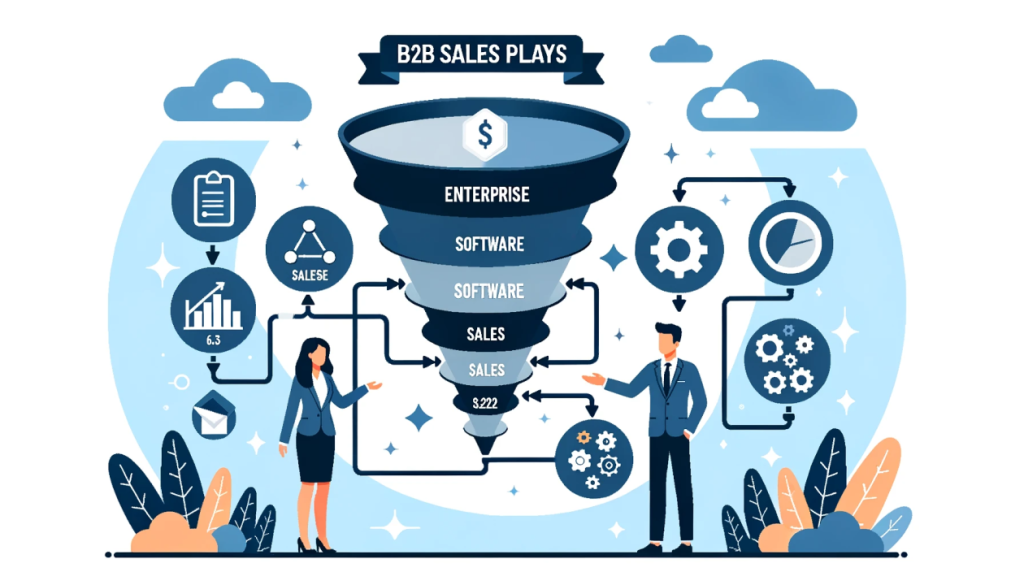Reimagining Telco’s Role: A Blueprint for Conquering the Enterprise Technology Services Market
The winds of change are sweeping through the global enterprise technology services landscape. By 2024, this market is expected to reach a staggering $4.0 trillion, expanding at a steady 3.4% CAGR. Yet, traditional telecom operators find themselves caught in a frustrating paradox: amidst this digital boom, their growth in the B2B sector has stagnated, registering a meager -0.4% CAGR over the past five years. This disparity underscores a critical challenge – while the enterprise world is clamoring for sophisticated technology solutions, many telcos are struggling to adapt and evolve.
This widening gap, however, presents a golden opportunity for forward-thinking telco leaders. By shedding the confines of a connectivity-centric past and embracing a dynamic platform-based approach, they can seize a new mantle – that of the “smart orchestrator.” This strategic evolution holds the key to unlocking robust revenue growth and driving transformative change across their businesses.
Beyond Bespoke: Rethinking Enterprise B2B Sales Strategies
The historical narrative of telcos in the enterprise technology services arena is often one of missed opportunities and limited success. Many telcos ventured into this market with a bespoke lens, crafting highly customized solutions for a select clientele of large enterprises and government institutions. This approach, while yielding initial wins, often became a trap, leading to:
- Scalability Roadblocks: Bespoke solutions, by their very nature, are difficult to replicate and scale across a wider customer base. This inherent limitation hindered telcos from efficiently serving the growing needs of a diverse market.
- The Profitability Paradox: The pursuit of large, bespoke projects often came at a steep price. The extensive costs associated with developing and maintaining such customized solutions, coupled with the competitive pricing pressures from large clients, often translated into razor-thin profit margins, hindering sustainable growth.
- A Struggle for Differentiation: By focusing primarily on bespoke solutions, telcos inadvertently limited their ability to stand out in a crowded market. They found themselves grappling to differentiate their offerings from established IT players like system integrators and consulting giants, who already possessed the scale, expertise, and resources to handle complex technology projects.
This legacy of bespoke solutions has contributed to a persistent perception that telcos are primarily connectivity providers, lacking the breadth and depth to become true technology partners for enterprises navigating the complexities of digital transformation. To rewrite this narrative, a bold shift in enterprise B2B sales strategies is imperative.
Embracing the Smart Orchestrator: A Catalyst for Sales Acceleration
The path forward for telcos lies in embracing the “smart orchestrator” model – a strategic framework that positions them as single-point, trusted partners capable of overseeing and managing a business’s entire technology ecosystem. This encompasses a broad spectrum, from foundational connectivity to advanced cloud services, robust security solutions, and other vital components.
Telcos possess several inherent advantages that uniquely equip them for this transformative role:
- Infrastructure as a Cornerstone: Telcos already own and manage the critical infrastructure – the networks and data centers – that underpin modern digital businesses. This pre-existing foundation offers a distinct edge in delivering a comprehensive suite of technology services.
- Navigating the Technology Maelstrom: The digital landscape is evolving at a breathtaking pace. The widespread adoption of cloud computing, the burgeoning Internet of Things (IoT), and a constant influx of emerging technologies are creating a complex web that many enterprises find daunting to navigate alone. Telcos, armed with their deep understanding of network technologies and their long-standing relationships with businesses, are ideally situated to become trusted guides for enterprises embarking on digital transformation journeys.
A Shift from Size to Place
Crafting a successful go-to-market (GTM) strategy for ICT services hinges on selecting the right customer segmentation model. Traditional segmentation methods, often relying on simplistic metrics like company size or broad industry classifications, have proven inadequate in grasping the true contours of technology needs across diverse business types.
A more insightful and impactful approach is place-based segmentation—a strategy that groups businesses according to their shared physical environments. This model recognizes that businesses operating within similar settings, be it stadiums, retail stores, hospitals, or manufacturing facilities, often face a common set of technology challenges and share specific requirements.
Real-world examples underscore the power of this approach:
- Telstra’s Triumph in Sports Stadiums: Telstra, a prominent Australian telco, offers a compelling case study in place-based segmentation. By partnering with the Australian Football League (AFC), Telstra has crafted comprehensive digital solutions specifically for AFC stadiums. These solutions leverage the company’s robust network infrastructure to deliver an array of benefits, from enhancing the fan experience through real-time data analytics to enabling targeted advertising within the venue. Telstra’s success illuminates the potential of tailoring ICT services to the unique needs of a particular location type.
- Beyond Stadiums: Expanding the Canvas: The positive outcomes of Telstra’s strategy in the sports stadium arena point to a wider applicability of this model. Telcos can replicate this success in diverse environments such as shopping malls, hospitals, public transport systems, and manufacturing plants. By identifying the common technology pain points inherent to each location type, telcos can develop standardized ICT solutions that are inherently more scalable and profitable.
Cultivating Strategic Partnerships: Immersive Leadership and a Hands-on Approach
As telcos embark on a journey to expand their ICT service portfolios, a crucial realization must take hold: building every capability in-house is neither feasible nor strategic. Strategic partnerships with technology companies that possess specialized expertise become essential enablers for telcos to swiftly assemble comprehensive solutions that cater to a wide spectrum of customer needs.
However, successful partnerships require more than just loose go-to-market alliances. They demand immersive leadership from both sides and a hands-on approach to ensure synergy and shared success.
Here’s a roadmap for forging robust partnerships:
- Complementary Capabilities as the Foundation: The first principle is to seek out partners whose strengths fill the gaps in the telco’s own portfolio. This might involve collaborations with companies specializing in cloud computing, cybersecurity, software development, or specific industry verticals. The goal is to create a combined force that is greater than the sum of its parts.
- Integrated Solutions: The Power of Synergy: Partnerships should go beyond simple reselling agreements. True value is created when telcos and their partners work hand-in-hand to co-create solutions that seamlessly blend the telco’s connectivity and infrastructure assets with the partner’s unique expertise. This integrated approach yields richer, more compelling solutions for customers and sets the telco apart from competitors who merely act as resellers.
- Strong Governance: The Framework for Success: To ensure the longevity and effectiveness of partnerships, a strong governance framework is paramount. This involves clearly delineating roles and responsibilities from the outset, establishing shared goals and objectives, and implementing robust processes for collaboration and decision-making. Such proactive measures prevent misunderstandings, streamline operations, and pave the way for a mutually beneficial relationship.
Real-world success stories validate the power of strategic partnerships:
- Nexon Asia Pacific: This private equity-backed venture has thrived by targeting the mid-size enterprise market. Their strategy involves partnering with hyperscalers and other technology companies to provide managed services carefully tailored to the specific needs of their customer base.
- Orro Group: Another example of partnership-driven success is Orro Group, a firm that has strategically aligned with industry giants like Cisco to enhance its credibility and scale in attracting large enterprise clients. Orro leverages Cisco’s technological prowess to bolster its digital managed services platform, offering customers a centralized view and granular control over their technology services.
A Value-Up Mindset for Sustainable Revenue Growth
For telcos to not just survive, but flourish in the dynamic enterprise technology services market, a fundamental shift in mindset is non-negotiable. The old paradigm of transactional, cost-driven selling must give way to a value-centric approach that prioritizes solutions designed to solve customer challenges, enhance their business operations, and deliver tangible returns on investment.
This transition towards “value-up selling,” demands a multifaceted strategy:
- Understanding the Customer’s Reality: The journey begins with in-depth research and analysis to gain a profound understanding of the specific pain points and needs of different customer segments. This understanding must go beyond surface-level generalizations and dig deep into the unique challenges faced by businesses within specific place types and industry verticals.
- Solutions Tailored to Solve: Armed with this insight, telcos can then develop ICT service offerings that directly address the identified customer pain points and align with their overarching business objectives. These solutions might encompass areas like enhancing operational efficiency, elevating customer experience, streamlining complex supply chains, or empowering data-driven decision-making.
- Beyond Delivery: The Power of Ongoing Value: A true value-up approach extends far beyond the initial sale and implementation of a solution. It involves providing continuous support, comprehensive training, and proactive service management to ensure that customers derive the maximum value from their ICT investments. This commitment to ongoing value creation fosters long-term customer loyalty and differentiates the telco as a true partner invested in their success.
By embracing this value-up mindset, telcos can transcend the role of mere vendors and become trusted advisors and strategic partners to their enterprise clients. This transformation paves the way for commanding premium margins and driving sustainable revenue growth.
Business Transformation: Embracing the Platform Era
The telecommunications industry stands at a crossroads. The traditional model, with its heavy reliance on connectivity as the core offering, is no longer sufficient to thrive in a world reshaped by digital forces. To achieve lasting success and business transformation, telcos must seize the opportunity to become platform-based providers of end-to-end enterprise technology services.
The roadmap for this transformation is clear:
- Embrace the Smart Orchestrator Role: Telcos must position themselves as “smart orchestrators” capable of managing and integrating the entire technology ecosystem of their enterprise clients.
- Adopt Innovative GTM Strategies: This involves moving beyond outdated segmentation models and embracing place-based segmentation to identify and target businesses with shared technology needs based on their physical environments.
- Forge Strategic Partnerships: Cultivate robust partnerships with specialized technology companies to rapidly build comprehensive solutions that address diverse customer requirements.
- Prioritize a Value-Up Approach: Transition from transactional, cost-focused selling to a value-driven model that prioritizes solutions designed to solve customer problems, enhance their businesses, and deliver tangible ROI.
The journey to become a platform-based technology partner will demand vision, commitment, and a willingness to embrace change. However, for telco leaders who boldly navigate this transformation, the rewards are immense. It is a path that leads to new avenues of growth, enhanced profitability, and enduring success in the evolving landscape of enterprise technology services.
If you’re a telco leader seeking to chart this transformative course and build a winning ICT strategy, I encourage you to reach out. Let’s discuss how we can collaborate to unlock the full potential of your business in this exciting new era.



